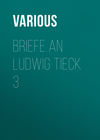Buch lesen: «Mrs. Whittelsey's Magazine for Mothers and Daughters», Seite 13
AN APPEAL TO BAPTIZED CHILDREN
BY REV. WM. BANNARD
It is presumed, young friends, that you have reached an age when you are capable of appreciating your obligations, but have hitherto neglected them. It is proposed, therefore, in what follows, briefly to call your attention to your position and responsibilities. If you have considered your privileges as the children of pious parents who have dedicated you to God in baptism, you are now prepared to examine your duties. You have then a name and a place in Christ's visible church; you sustain covenant relations to God, and these, fraught as they are with manifold benefits, cannot be without corresponding responsibilities.
You are not the children of the world but the children of the covenant. Solemn vows have been assumed for you, and these vows are binding upon your consciences. They were taken with the hope and intention that you should assume them for yourselves when you arrived at years of discretion. You were given to God with the expectation that you would grow up to serve him. And this it is your duty to do. You are his property. You are his by sacred engagement, and you cannot violate this engagement; you cannot renounce His service, and devote yourselves to the service of Satan or of the world, without dishonoring your parents, doing injustice to God, and periling your own salvation. You may say this contract was formed without my consent, and when too young to understand its requirements. No matter; this does not release you from obligation to perform it. Ability and responsibility are not always co-extensive. We are bound perfectly to keep God's holy law, and yet no man of himself is able to do it. His inability, however, does not diminish it's binding force. God cannot abate one jot or tittle of the law's demands, for that would be a confession of its imperfection or of his variableness. Or, should he diminish his demands because our wickedness has made us incapable of keeping them, then the more wicked we become, the less binding would be his authority, and if we only grew depraved enough we might escape from all obligation to obedience. Such an idea, cannot, of course, be tolerated. The truth is, that under the government of God, as well as under human government, children are held responsible for the conduct of their parents. Parents have a right to act for them, and children must abide by their decisions, and endure the consequences of their acts. They cannot escape from it, for this is a natural as well as moral law which is continually operating. The character and destiny of the child are determined mainly by the parent. He may educate him to be refined, intelligent and useful, or to be vicious, debased and dangerous. This process is going on continually. The parent may make positive engagements in behalf of his children, which they are bound to perform, and which the law recognizes as valid. A father dying, for example, while his children are in infancy or in their minority, may require them to appropriate a portion of his estate for certain ends, as a condition on which they shall receive it. Another may require of his children a given service, on condition of receiving his blessing; and if the requirement be not morally wrong, who would not feel themselves bound to observe it? But there are examples, perhaps more in point, in Scripture, in which parents have entered into formal covenants that have had direct reference to their children. Adam covenanted for himself and posterity. They had no personal agency in it, in any sense, and yet all are held accountable for its transgression; all suffer a portion of its penalty, as they might, if he had kept it, been made possessors of its blessings. So Abraham covenanted with God for himself and his seed; and his descendants felt themselves bound to fulfill its requirements. They knew, in fact, that unless they did, its benefits could not be enjoyed. The same principle holds good in reference to the baptized. You are bound by the covenant engagements of your parents. You cannot be released from them on the ground that you had no agency in assuming them. They were assumed for you by those who had the right to do it—a right recognized by both God and man—and you cannot therefore throw them off; you cannot willfully disregard or live contrary to them, without guilt and dishonor. The apostle urges this principle when he testifies "to every man that is circumcised that he is a debtor to do the whole law." His consecration to God in this rite bound him to keep his whole law; and yet this obligation was imposed on him when an infant only eight days old; but after arriving at maturity, he could not shake it off. He was a debtor still, for he was placed in that position in accordance with the divine command and by those who had the authority over him. With equal propriety may we now testify unto you who are baptized, that you are debtors unto Christ. You are bound to keep the laws of his kingdom, bound to serve him to whose service you have been set apart. You are not your own; you are not, therefore, to live unto yourselves. The vows of God are upon you. You have been sealed with his seal. And since you have attained an age at which you can understand your position, you are bound to perform those vows; to seek to be sealed with the Holy Spirit unto the day of redemption. There is no escape from this obligation; and when, therefore, you live utterly regardless of it, as many do, your conduct is doubly criminal. You may have flattered yourselves that you enjoyed superior advantages, and that you were more highly favored than others; and this is true. But you must take into the account your corresponding responsibilities. There is a broad distinction between your position, and that of mere worldlings, and there ought to be a like difference in your practice. You cannot give yourselves to the sins of youth, or the gayeties of life. You cannot set your hearts on fashion, dress, amusements, business or any mere worldly ends, with as much consistency, or with as little guilt, as your unbaptized associates. You cannot harden yourselves against the truth, grieve the Holy Spirit, turn away in coldness or disdain from the claims of Christ, without exposing yourselves to an aggravated condemnation. Shall you who are pledged servants of Christ, who are bound to him by solemn covenant, be regardless of these vows, or be recreant to Him as his avowed enemies? Ah, this is approaching fearfully near the appalling sin of "treading under foot the Son of God, of counting the blood of his covenant an unholy thing, and doing despite unto the Spirit of grace." You cannot, surely, have considered your relations to Christ and to his church. You cannot have pondered the nature of your baptismal vows which were taken for you, but which are now binding upon your own souls. You cannot realize against what gracious promises, what high, privileges you sin, in living contrary to your obligations, and in remaining at heart, and by your conduct, "strangers to God and aliens from the commonwealth of Israel." Review your position, and remember you are placed where you cannot recede. Duties press upon you which you cannot disregard; vows are upon you which you cannot break with safety or with honor. It is not enough that you lead a moral life, or that you continue in your present position. You are required to advance. You have been pledged to God; and to fulfill this pledge you must be His in heart. You must choose His service. You must take Christ's yoke upon you and dedicate yourselves to Him. Nothing short of this will fulfill your covenant vows or insure your enjoyment of its blessings. As to receding, that is utterly inadmissible. You have been put in this relation by those who loved you and had the right, nay, were commanded of God, to dispose of you in this manner. You cannot then evade it. You may say you never gave it your consent, and that it is hard to be thus bound to act contrary to your natural inclinations; but it is right, and you cannot help it. You are in this position, and you cannot break away but at the peril of your salvation; nay, without the certainty of perdition. But it is not hard, or cruel, to require you to love and obey God. You were created for this, and your nature will never attain to its perfection until you fulfill this its noblest destiny. A hard thing to do right! A grievous thing to be saved from the pollution of sin and the very gulf of perdition! A hard thing to be taken under divine protection; to be enriched with God's blessing; to be numbered among his people on earth and ultimately admitted to his kingdom in heaven! Impossible! You did not think it; you did not mean to urge this as an objection to your most obvious duty. You would not object to your parents' securing for you a costly estate while in your minority, and why then discard the heavenly inheritance they would provide for you? Fulfill your vows. Choose His service, and be blessed now and forever.
Original
THE PROMISE FULFILLED
"Leave thy fatherless children with me, and I will preserve them alive."
(Concluded from page 119.)
The elder brother, De Witt, from childhood, was of a thoughtful cast of mind, regular in his habits, careful in forming his associations, kind and dutiful as a son and brother. He ever proved a help and solace to his mother in the family circle, where he was the oldest child. In pursuing his course of studies he evinced industry of application, and sustained an excellent standing in his classes. His regular and interested attendance on the exercises of the Sabbath-school, as well as the services of the sanctuary; his conduct in the family circle, and the developments of the closing scenes of his life, all tend to form the conviction that divine truth had obtained a lodgment in his mind by the sanctifying influence of the Holy Spirit. At the interesting period of nineteen years, full of hope and promise, the seeds of pulmonary disease sprang forth within him. In the fall of 1850, he began to cough, and since then, with variations as to its severity, it continued with him, and his friends marked that it became deeply seated, and apprehended its probable termination. He, however, retained his active habits and course of study till last fall. His earnest attention to sermons, his occasional remarks on their evangelical and practical character as profitable, and his prayerful reading of the Bible, showed the influence divine truth was exerting upon him. The sickness and rapid decline of his brother Joseph was to him most affecting, as they had grown up from childhood together in uninterrupted intercourse and love. In his feeble state of health, he saw his beloved brother hastening to death and the grave, while their dear mother was yearning over both in view of their spiritual welfare. While everything indicated a deep interest in the matter of the soul's salvation, doubts and difficulties prevented him from finding joy and peace in believing. About ten days before his death, and just before the death of Joseph, he received the remarkable letter from his Uncle Scudder which wrought powerfully on his mind, and followed by Joseph's death, was doubtless instrumental, under the divine blessing, in leading him to the decision of giving himself to the Savior by the profession of his faith. The Sabbath, January 11, on the morning of which Joseph died, was indeed a memorable and impressive one in many of its associations. De Witt had just made profession of his faith, and was admitted into the communion of the Presbyterian Church in Canal street, of which the Rev. Mr. Carpenter is pastor, and was carried into the church to unite with God's people in celebrating the Lord's supper, and it was just at the expiration of the two months of special prayer by his uncle in India. When his mother, this morning, announced to him the death of his brother, he just exclaimed, with much emotion, "Is Joseph dead? Then I have no brother." He left the room for a moment and returned, saying, "Mother, we have no cause to mourn. Joseph is only gone to the new Jerusalem, where dear father was waiting to receive him," and then calmly prepared himself for the sacramental service in the church before him. The writer of this had an interview with him the following morning (Monday). Everything conspired to render the scene impressive. As I saw the remains of Joseph, I observed in the appearance of De Witt the indications of approaching death, and heard the account of his attendance at the Lord's table on the preceding day. After conversation, he asked me to pray that it would please God to spare his life that he might be a support and comfort to his mother, and be permitted to labor for Christ. I replied that such desires were in themselves worthy, but that I strongly felt it would be with him as with David in whose heart was the desire to build the house of God. God accepted the desire, but denied him the work, and assigned it to another. I told him that I must affectionately tell him that every indication denoted that the Savior was preparing him shortly to enter upon his service in heaven, and that he would soon join his brother, whose mortal remains were then waiting for the tomb. He received this without agitation, and calmly replied that he then wished me to pray that it would please God to impart and preserve to him the light of his countenance, and his divine peace, and enable him to glorify Him during the little portion of time which might still be allotted to him on earth. His mother states she does not remember after this to have heard him say much about living, and that only as connected with the service of his Savior. His mind, which had been opening to the light and peace of the Gospel, became more and more established in the faith of Christ, and enriched with the comforts of the Spirit. While his body was fast wasting, his soul as rapidly grew strong. There has rarely been a more striking growth in grace, calm and substantial, free from all vain excitements and feverish heats. Many interesting incidents connected with the spirit he displayed, and the words he uttered during the week following my interview with him just alluded to, are treasured up in the heart's memory. But there is no room for details until we reach the closing scene, from Friday to Monday, January 19. I shall copy from some memoranda furnished by the mother. She had before urged that he should pray in view of continued life only for strength to speak of the goodness of the Lord in the land of the living, and thus live a long life in the little time spared to him. This seemed to be verified. Mrs. Hunt writes: "On Friday morning he arose as usual, and reclined on the sofa. He was weak, and his throat sore, so that he could only swallow liquids. When the physician visiting him left, I told him that he thought him very low, but I requested him to remember what his beloved minister had told him, to look away from death to Jesus and Heaven; he exclaimed, 'O death, where is thy sting? O grave, where is thy victory? The sting of death is sin, and the strength of sin is the law; but thanks to God, who giveth me the victory, through my Lord and Savior Jesus Christ.' He expressed the delightful thought that he would be where 'the Lamb would feed him, lead him to living waters, and wipe away all tears from his eyes.' Sometimes he would say, 'Precious Savior. Mother, what would I do without such a Savior? Precious hope, what would I do without such a hope?' And then he would speak of the mansions in Heaven. The 27th and 40th Psalms, which his dear father had selected for us a short time before his death, that we might read them for our comfort after he was gone, were given. When the 27th was commenced he took it up and repeated the whole. On Saturday he had severe pain in the lungs, and thought his end near. Several of his friends called, and he noticed them all distinctly. He addressed two of his fellow-students in the University in an affectionate appeal to what he supposed their spiritual condition. In a conversation with Rev. Mr. C., he said that if God had been pleased to spare his life, he should have felt himself consecrated to the ministry and missionary service; and expressed the calm assurance of his faith. Prayer was offered that he might spend one more precious Sabbath on earth. The night passed, and the Sabbath came. My child exclaimed, soon after waking, 'Precious Sabbath,' and his eyes beamed with hallowed feeling. I said, 'Dear son, can you truly say this morning that you feel the peace of God which passeth understanding?' He raised his eyes and replied, most impressively, 'Oh, yes.' He said with delight, 'Mother, O think that Joseph is now by the river of the water of life.' He said also to me, 'Mother, you will not weep for me?' I replied, 'If I do joy will mingle with my tears.' He continued, 'I shall be nearer to you in Heaven than in India' (alluding to his purpose, if his life should be spared, to be a missionary in India). I asked him what message I should send to his Uncle Scudder. He said, 'Tell him I think my heart was in the right place when his letter reached me, or I know not what I should have done.' Two friends came in. De Witt said, 'I thought I should have spent part of this day around the throne in heaven.' And one (a pious young college companion) said to the other, 'If this be dying, I envy him.' After service in the afternoon, Rev. Mr. Carpenter came in with two of his elders, and three other Christian friends were present. Singing was proposed; De Witt was delighted with the thought of it, and selected the hymns. 'Come, thou fount of every blessing,' was sung first. My child could not join with his voice, but stretched out his arm, and with his arm, having the forefinger extended, beat the time. It was a touching, solemn scene; the singing filled the room, and seemed to go up to Heaven. After we had ended the second hymn, 'Rise, my soul, and stretch thy wings,' he exclaimed, 'I thought I was almost in heaven.' On Sabbath night, about ten o'clock, he inquired of a friend, 'whether she did not think he would soon die?' I went to him and asked him if he felt any change that induced him to ask the question. He replied, 'Everything seems to fail.' I then talked to him about the Savior being with him when he passed through the dark valley, and added, 'Dear son, I will give you up to the Lord.' Directly he said, 'I am now ready any moment to say, Lord Jesus, receive my spirit.' He afterward repeated 'Lord Jesus, receive my spirit. The Lord is my light and my salvation. Of whom shall I be afraid? It is better to die than live.' A little before six o'clock he looked intensely upon me. I asked what he wished to give me?—his farewell kiss, which he repeated several times. He then again gave me an intense look. I said, 'My son, God will take care.' He replied, 'I know he will.' He shook hands with two of his youthful companions, and sent a message to the brother of one of them, expressive of his solicitude for his spiritual welfare. I said to him, 'I have taken care of you these nineteen years, for the Lord.' He said, 'Yes, these nineteen years,' but did not proceed. He asked one of his friends to pray, which he did. After this he ceased to speak, and sank, continuing to breathe hard, without a struggle, until the precious spirit took its everlasting flight a little before eight o'clock, January 19."
I have thus given, from the notes furnished by the bereaved and mourning, but grateful and comforted mother, a sketch of the closing hours and dying scene of this youth, which, in connection with the similar scene in the younger brother, beautifully and strongly illustrates the precious trust committed to mothers, the importance and value of maternal influence, and the encouragement to its faithful and wisely-directed exercise.
T.D.W.
Original
THE WASTED GIFT; OR, "JUST A MINUTE."
"Whatsoever thy hand findeth to do, do it with all thy might."—Ecclesiastes 9:10.
(Continued from page 128.)
That evening a little schoolmate came to visit her; they played several amusing games, and Emily staid up much past her usual hour. The next morning when her mother called her, she felt very sleepy, and unwilling to rise, so instead of jumping up at once, she turned her head on the pillow thinking "I will get up in a minute." But in less than that minute she was fast asleep again, and did not awake until aroused by Mary the nurse, whose voice sounded close in her ear, exclaiming,
"Why, Miss Emily, are you in bed yet! Here have I been looking all through the house and garden for you. Jump up quick, breakfast is just over."
You may be sure Emily did not wait a second bidding, but hurrying on her clothes, hastened down stairs without even thinking about saying her prayers, which no little child should ever forget to do, because it is the kind and merciful God who keeps us safely through the night, and our first thoughts when we awaken should be gratitude to him for protecting us, and we should pray to Him to keep us all day out of sin and danger, and teach us how to improve the time which He has intrusted to our care.
Emily thought of none of these things, but ran down to the breakfast-room, feeling rather ashamed of being so late. Her papa had finished his breakfast, and gone out, and when her mother looked up to the clock as she entered, she saw that it wanted twenty minutes to nine.
"How very late it is!" thought the little girl, as she hurried off to school, "mamma always calls me at seven. I did not think I had slept so long."
Despite all Emily's haste she was too late; school had commenced when she entered, and worse than all, she did not know her lessons, and was kept in an hour after the rest were dismissed. She could not study the evening before, and had depended upon an hour's study before breakfast, but her unlucky morning nap left her no time to think about lessons before school, and her consequent disgrace was the punishment. The little girl returned home that day very unhappy.
Emily had not forgotten the conversation about the wasted gift, and had determined to give no opportunity for her mother to complain. She thought she was very careful that week, but never imagined how much of the precious gift she wasted each day in idleness.
The day after her unfortunate disgrace in school, she brought down several articles of dress that needed repairing, and seated herself at the window to work. Her mother had promised to take her out with her, and Emily had to finish her mending first. She plied the needle very steadily for a while, but presently her attention was attracted by the opposite neighbors.
"Look, mamma," she exclaimed, "there is Mrs. Dodson and Lucy; they are just going out, and Lucy has on a new hat."
"Well, my dear," returned her mother quietly, "it is not unusual for people to get new bonnets at this season."
Emily felt a little abashed at this reply, but could not refrain from casting furtive glances across the way. The afternoon was fine, and the street filled with well-dressed people. The little girl watched the passers-by, holding her needle listlessly in her fingers, and presently cried out,
"Did you see that lady, mamma? How oddly she was dressed."
"No," answered Mrs. Manvers, "I am attending to my work now, but I hope soon to join the promenaders myself."
Emily stole a glance at her mother to see whether her countenance implied reproof, but Mrs. Manvers's eyes were fixed upon her work and the little girl again endeavored to fix her attention upon her sewing. At length Mrs. Manvers rose and put aside her work-basket. "I am going to dress, Emily," she said.
"Very well, mother, I will be ready in a minute," replied her daughter, and she followed her mother up stairs.
Emily tossed over her bureau in vain to find a clean pair of pantalets, and then she remembered of having taken several pairs down stairs to mend. She ran hastily down and selected the best pair. Some of the button-holes were torn out, but she could not wait to mend them now, so hastily pinning on the pantalets, she dressed and joined her mother.
As they pursued their walk, Emily felt something about her feet, and looking down discovered her pantalets; she hastily stooped to pull them off and the pin scratched her foot severely. Mrs. Manvers saw all this, but said nothing; she knew that her daughter had wasted time enough to have mended all her pantalets, and she added another hour to the already long account of wasted minutes in her memorandum.
The following day was Friday, and it was part of Emily's duties on this day to arrange her bureau-drawers and put her closet in order. She went up stairs after dinner with this intention, but there were so many little gifts and keep-sakes in her drawers, to be successively admired and thought over, so many sashes to unfold, and odd gloves to be paired, that the whole afternoon was consumed, and the tea-bell rang before she had quite finished the second drawer, and consequently the duty of that day remained to be finished on the next.
"Well, my little girl," said her father the next morning, "I hope you will have my handkerchief nicely hemmed by this afternoon; you have had it several days now, and I suppose it is nearly finished. I shall want it, as I am going away after dinner."
"You shall have it, papa," replied Emily. She did not like to tell him the handkerchief was not yet commenced, as she felt quite sure she could finish it in time, and determined to begin immediately after breakfast.
When she went up stairs to get the handkerchief out of her drawer she saw her bureau was yet in disorder. "Mamma will be displeased to see this," she thought, "and I shall have time enough to put it in order and hem papa's handkerchief beside." She went eagerly to work, but the bureau took her longer than she anticipated, and when her father came home to dinner she had not finished his handkerchief.
Now she made her needle fly, but her industry came too late; her father could not wait, and Emily had the mortification of hearing him say:
"I hope my handkerchief will not be like my gloves, that you kept so long to mend, and mamma had to finish after all."
She cried bitterly after he was gone, but managed through her tears to finish the handkerchief at last, and carried it to her mother, asking her to beg her papa's forgiveness.
After tea was over, Mrs. Manvers called Emily to her, and folding her arm fondly around the little girl's waist, pointed to a small book lying open upon the table, saying as she did so:
"Do you remember, my love, our conversation last Saturday night upon the subject of your gifts?"
"Oh, yes, mamma, and you told me you would keep an account of my ill-usage of one of them."
"I have done so, my dear, and now tell me can you not imagine what this gift is which you so much abuse?"
"Indeed, I cannot, mamma," replied the little girl with a sigh. Mrs. Manvers placed the memorandum book in her daughter's hand without saying a word.
There, written at the head of the page, were these words:
"Emily's Waste of Time."
and beneath was quite a long column of figures, and a list of duties unfulfilled.
"Oh, mamma," cried Emily, throwing herself upon her mother's breast, "it is time, precious time, that is the gift I waste; but surely I have not spent so many idle minutes in just one week."
"I am sorry to say that you have, my dear daughter, all these and even more. I have promised to keep an account, and I have done so; add them up and see how many there are."
Emily added up the figures with tearful eyes, and said, "there are four hundred and twenty, mamma."
"And how many hours does that make, Emily?"
The little girl thought a moment, and then answered,
"Seven hours."
"Very well; then you see you waste seven hours in a week, which would make three hundred and sixty-four in a year, and if you should live the allotted period of life, which would be sixty years from the present time, you will willfully waste twenty one thousand eight hundred and forty hours of the precious time God has given you in which to work out His will."
"Oh, dear mamma, it does not seem possible; I am sure I don't know how the time slips away," said Emily, sadly.
"I will tell you, my love," replied Mrs. Manvers. "It slips away in just a minute; as uncounted drops of water form the sea, so do millions of minutes make up the sum of life; but so small are they that they pass without our heeding them, yet once gone they come back to us no more. Time is the one talent, the precious gift which God has bestowed upon all his creatures, and which we are bound to improve. Every hour brings its duty, and do you think it is right, Emily, to leave that duty unfulfilled?"
Emily hung her head, while tears slowly coursed down her cheek.
"Do you not see, my dear, that by idling away the precious moments you crowd the duty of one hour into the next, so your task can never be finished, or at best very imperfectly? If you reflect, the experience of the past week will tell you this. I have kept this memorandum on purpose to convince you of your sinful waste of that most precious of all gifts,—the time which our Master allows us here to work out our happiness hereafter. Remember, my love, that you are accountable to Him for your use of His gifts, and a proper improvement of time will not only save you many mortifications and produce much pleasure and comfort to yourself and all about you, but it is a duty you owe to the God who bestowed it. Do not think me unnecessarily earnest, my dear little girl; the subject is of fearful importance, and this habit of putting off till to-morrow what should be done to-day, is your greatest fault. Remember hereafter that 'Whatsoever thine hand findeth to do, do it now with all thy might,' and then I shall have no more occasion to remind you of the wasted gift."
Emily never forgot the lesson of that week, but gradually overcame the evil habits of idleness and procrastination which were becoming fixed before she was made fully aware of their danger, and a long life of usefulness attested the good impression left upon her mind by her mother's memorandum of "The Wasted Gift."




















